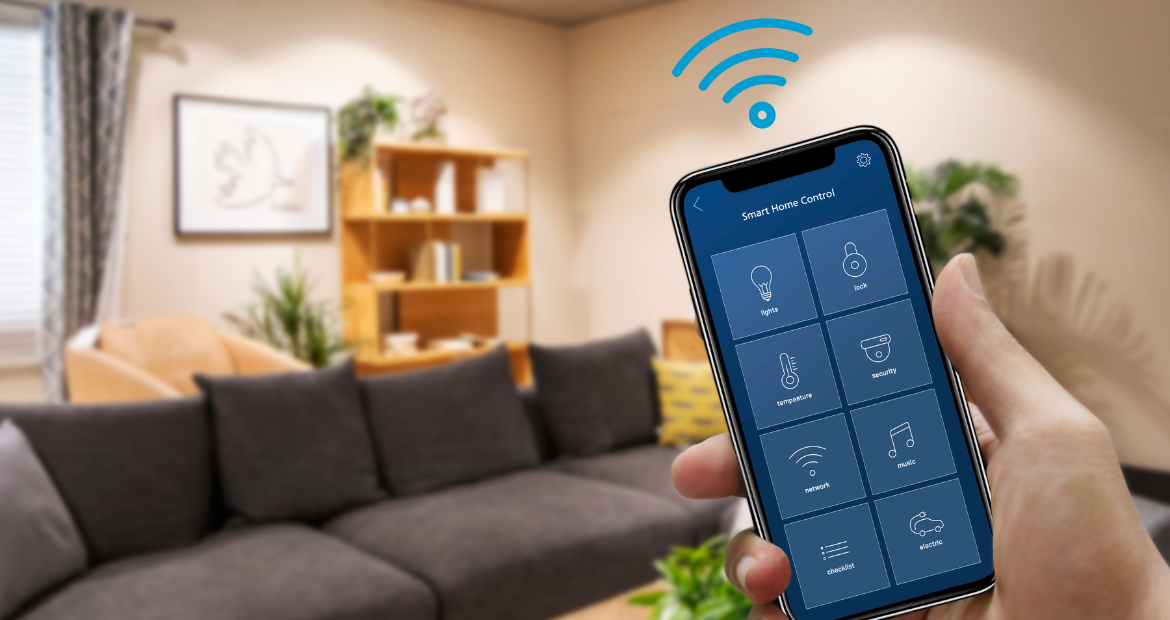Smart home technology devices
If you’re always trying to save money, here’s a hidden secret: your smart home devices may be able to reduce your home insurance bill. Though most of us put these gadgets in to save time or enhance security, many insurers regard them as mechanisms that minimize risk, and they’ll pay you back for that.
Let’s take a step-by-step look at how this is done and what smart home gadgets actually have the ability to make a tangible difference in your next insurance check.
Why Insurance Companies Adore Smart Homes
Insurance is risk. The less risk your house is to insure, the lower your premium. Smart home gadgets prevent or mitigate damage by fire, theft, water leaks, and other expense-generating incidents.
That is, by taking proactive steps to secure your home using intelligent technology, insurers feel more certain that you will be making fewer claims—and the result can be lower rates. Certain companies provide discounts of up to 20% simply for adding approved smart devices.
- Smart Security Systems
- Why it matters: The FBI says that homes protected with security systems are three times less likely to be burglarized.
- How it saves: A full smart home security system, particularly one that involves cameras, motion sensors, and 24/7 professional monitoring, notifies your insurer that your property is highly secure.
What to look for:
- Motion sensors
- Door/window sensors
- 24/7 monitoring services
- Emergency service integrations
Top brands: SimpliSafe, ADT Smart Home, Ring Alarm
- Insurance benefit: Several companies provide 5% to 10% discount on premiums for monitored systems.
- Smart Smoke and Fire Detectors
Why it’s important: Fires are one of the most expensive and destructive household dangers. Not only does a smart smoke alarm beep, but it can ring your phone, alert multiple alarms in the house, and even call the authorities.
How it protects: Early detection of fires translates to quicker response time, reduced damage, and fewer claims.
What to consider:
- Alarms that can sense smoke and carbon monoxide
- Interconnectivity of alarms
- Mobile notifications
Popular products: Nest Protect, First Alert Onelink, Kidde Smoke & CO Alarm
Insurance discount: You may save up to 5% on your premium with smart fire detection systems.
- Water Leak Detectors
- Why it’s important: Water damage is one of the most frequent insurance claims, and it’s costly to repair.
- How it saves: A high-water sensor can sense leaks from dishwashers, pipes, or water heaters and notify you before a small drip turns into a big flood.
What to look for:
- High-risk area sensors (under the sink, behind washers)
- Automatic shut-off valves
- Wi-Fi or Bluetooth connectivity
- Insurance benefit: Some insurance companies offer up to 10% discount for leak detection systems with automatic shut-off capabilities.
Popular brands: Flo by Moen, Honeywell Lyric, Phyn Plus
- Smart Locks and Doorbells
Why it matters: One of the largest home theft concerns is forced entry. Smart locks and video doorbells discourage intruders and capture suspicious behavior.
How it saves: Decreasing the risk of burglary reduces insurers’ financial liability, potentially keeping premiums lower.
What to look for:
Keyless entry
Real-time video and motion alerts
Guest access codes
Popular brands: August Smart Lock, Ring Video Doorbell, Yale Assure Lock
Insurance benefit: These may contribute to bundled discounts when part of a full home security package.

Controlling Smart Home Devices
- Smart Thermostats
Why it matters: Smart thermostats optimize heating and cooling, which can reduce the risk of frozen pipes—a frequent cause of water damage claims.
How it saves: These devices prevent damage due to extreme temperatures, which could reduce your risk profile with your insurance provider.
What to look for:
Temperature control via smartphone
Freeze alerts
Learning capabilities (e.g., Nest Learning Thermostat)
Popular brands: Nest, Ecobee, Honeywell Home
Insurance benefit: Not all companies provide a direct discount for thermostats alone, but as part of a group of other smart devices, they might increase your chances of getting a discount.
- Smart Lighting Systems
Why it matters: A well-lit house is less likely to be burglarized. Smart lighting systems can simulate occupancy even while you are not present.
How it saves: Automated lighting helps prevent break-ins, especially when programmed for vacation mode or random on/off patterns.
What to look for:
Scheduled or motion-activated lighting
Remote control via apps
Integration with security systems
Popular brands: Philips Hue, LIFX, TP-Link Kasa
Insurance benefit: Smart lighting may not trigger a standalone discount, but it strengthens your case for overall home security deductions.
How to Maximize Insurance Savings
- Contact Your Insurance Provider First
Not all insurance providers accept all smart devices. Prior to purchasing, inquire from your provider which devices are accepted for discounts.
- Bundle Smart Devices
The more inclusive your smart system, the merrier. Blending fire alarms, security systems, and leak sensors might be the key to maximizing savings.
- Offer Proof of Installation
Most providers will demand receipts, photos, or installation reports prior to activating any discount.
- Shop Around
Various companies have varying policies. It is worth comparing quotations—some will provide greater incentives for your smart technology investment.
Conclusion
Investing in smart home technology is not merely a matter of being convenient or following technology trends—it’s also a tactical means of reducing your home insurance premiums. By investing in the right balance of gizmos such as smart security systems, fire alarms, water sensors, and smart door locks, you might make your home secure and cheaper to insure.
Don’t forget to ask your insurer if discounts are available and keep track of all your smart tech upgrades. It’s one of the smartest things you can do—not just for your home, but for your wallet, as well.

 +18585990381
+18585990381





